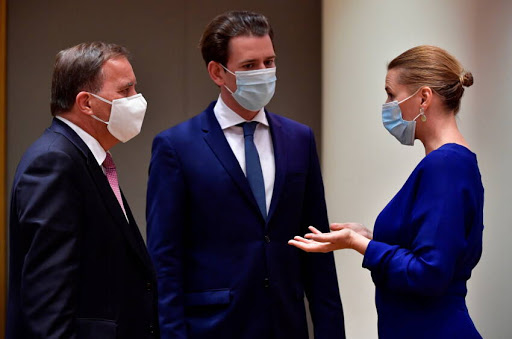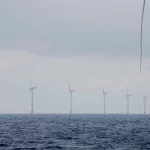This website uses cookies to improve your experience. We'll assume you're ok with this, but you can opt-out if you wish. Read more
Coronavirus DK: Denmark approves EU relief grants
Coronavirus DK: Denmark approves EU relief grants
Very early Tuesday morning the heads of state in the European Union reached a historic agreement on a coronavirus recovery package (DK). The deal consists of EUR 750 billion ($860 billion) in loans and grants to offset the economic damage caused by the pandemic. It was settled after four days of sometimes intense negotiations. The difficulty was owing mainly to the objection of the “frugal four” nations – which included Denmark – to providing grants as well as loans to the hardest-hit countries.
 |
|||||||
The inevitable compromise
The 23 other countries wanted to use EUR 500 billion for grants, and the four holdouts countered with an offer of EUR 350 billion. The latter were criticized, particularly by French President Emmanuel Macron, for putting the entire European project in danger. The leaders finally reached a compromise of EUR 390 billion along with rebates on the annual contributions of the frugal four.
Denmark’s rebate in the new budget will increase from DKK 1 billion ($150 million) to DKK 2.7 billion ($415 billion). Altogether Denmark’s contribution during the coming budget period will increase, partly because the departure of the UK from the Union raises the expenses for the remaining countries. Denmark receives a rebate because it is a net payor to the budget, meaning that it contributes more than it receives in subsidies.
About the rebate, Prime Minister Mette Frederiksen said, “It indicates that you can fight for both Danish and European interests at the same time. . . . Altogether it is a really, really good agreement for Europe and a really, really good agreement for Denmark.”
Climate and democracy in play
Frederiksen said that it was also in Denmark’s interest (DK) that the southern European countries can recover from the coronavirus crisis. She also commended the increased emphasis on climate and research in the new budget. Another main sticking point was a requirement that the EU’s annual disbursements be contingent on countries’ adherence to democratic principles and the rule of law. This was directed particularly at Poland and Hungary, which threatened to veto the relief package and succeeded in forcing a compromise on the measure that weakened the review process.
The fatigued officials were relieved to be able to bump elbows after the last marathon session. “I can’t remember the last time I have been awake for two nights in a row, but it was necessary,” said Frederiksen. “[We] toast not with champagne, but with juice.”


